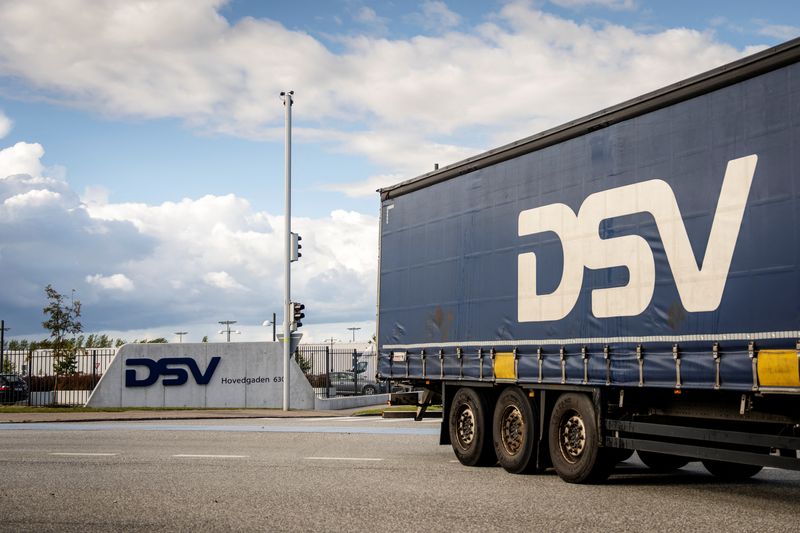Explainer-How DSV grew into the world's biggest logistics firm
COPENHAGEN (Reuters) - DSV is on the verge of becoming the world's biggest logistics firm after agreeing to buy Schenker, the logistics arm of German state rail operator Deutsche Bahn, for 14.3 billion euros ($15.85 billion).
DSV, a logistics firm that started as a small enterprise of 10 truckers in 1976, has grown rapidly through a string of successful acquisitions - some larger than the company itself - in a crowded logistics market.
WHAT IS DSV?
Beginning with 10 truckers in 1976, DSV has more than 75,000 employees today. Combined with Schenker, the company will have a workforce of 147,000 and revenue of 293 billion Danish crowns ($43.52 billion) based on 2023 results, more than Danish drug company Novo Nordisk (NYSE:NVO ).
DSV handles everything from shipments of single pallets to managing the entire supply chain for multinational corporations.
The company was founded in 1976 by Leif Tullberg and nine other independent truckers, who saw a gap in the market to act as middlemen in the shipping industry, helping businesses move goods around the world for a small commission.
The business was asset light and did not own the ships, planes or trucks themselves.
WHAT MARKET SHARE WILL THE ENLARGED BUSINESS HAVE?
DSV's said its takeover of Schenker will create the world's biggest logistics company, overtaking Germany's DHL Logistics and Swiss group Kuehne und Nagel in both volume and revenue. Still, the group will only hold between 6% and 7% of a highly fragmented global logistics market.
The world's top 20 logistics firms are estimated to have a global market share of 30-40%, with the rest of the market occupied by local and regional players.
The global third-party logistics market size is estimated to grow by more than $500 billion from 2023 to 2027, driven by e-commerce and integrated shipping services, according to research group Technavio.
HOW DID DSV GROW?
The company has expanded through several acquisitions in recent years, including U.S. company UTi bought for $1.35 billion in 2016, Swiss Panalpina acquired for $4.6 billion in 2019, and Kuwaiti Global Integrated Logistics (GIL) it bought for $4.2 billion in 2021.
Source: Investing.com
